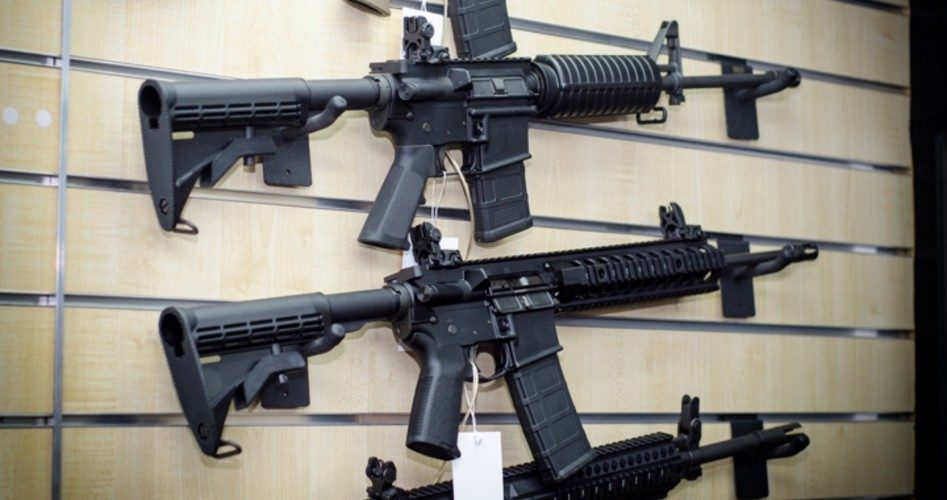
Podcast: Play in new window | Download ()
Subscribe: Android | RSS | More
In spite of fading support for universal background checks, as reported by CNN on Tuesday, there are still some in the White House and nearly all of the mainstream media who are deliberately keeping the conversation in favor of background checks going.
According to CNN, lawmakers are reconsidering the political risks of pushing for universal background checks in this highly toxic political environment leading up to elections next year. “It’s a sign of a possible divide between Trump and his party,” wrote CNN, and that many Republicans “have appeared skeptical” about Trump’s belief that he needs to “do something meaningful” following the mass shootings in Texas and Ohio last week. It added that “several conservative allies and Republican lawmakers have privately voiced opposition to his push for [universal] background checks.”
This hasn’t fazed the New York Times in the slightest, declaring that “online gun sales … exploit a major loophole” in the present background-check system. That “loophole” is the conducting of private sales between individuals that aren’t captured by that system. The Internet, according to the Times, has “made it as easy as a few mouse clicks to find a gun for sale from a private seller on an online marketplace or through social media.” The Times quoted Christian Heyne, the Brady Campaign’s vice president, who said, without proof, that one in five gun sales are conducted this way.
This is the “loophole” that the Times, and the Brady Campaign, want to “close” even though the paper admits that “a stronger background check system most likely would not have prevented the massacres in Texas and Ohio.”
So, something else must be afoot here. Why would mouthpieces such as the Times and rabid anti-gun groups such as Brady keep pushing for something that doesn’t work? AWR Hawkins, a writer at Breitbart and Ammoland Shooting Sports News, knows. The problem, he says, is with the word “universal,” which implies that the “new, improved” background-check system that anti-gunners have in mind would track and follow every gun in the country in every transaction by every buyer and every seller. That would include not only private sales between consulting adults but transactions by criminals buying and selling in the black market (on the street, from friends, etc.).
The problem, says Hawkins, “is that the government does not know” where all the guns are — all estimated 400 million of them — and so how could it be able to track and follow every sale and purchase of them?
The solution: create a national registry so that the government will know the location, and the owner, of every firearm in the country. Then, “universal” will mean what it says: The government will be able to conduct “meaningful” (the president’s words) background checks on every sale and purchase.
Hawkins says that California comes close to what the anti-gunners have in mind for the rest of the country:
We saw this scenario play out in California where universal background checks were adopted in the early 1990s. That state now has firearm registration requirements and a confiscation law as well.
Moreover, California has a ten-day waiting period on gun purchases, a requirement that would-be gun buyers first get a gun safety certificate from the state, a one-handgun-a-month purchase limit, a minimum firearm purchase age of 21 years, a ban on campus carry, gun controls on ammunition sales, and more.
Don’t think anti-gunners don’t know this (though perhaps the president doesn’t). That’s why they continue to press for universal background checks that can’t work unless there’s a federal register of every firearm and gun owner in the country.
Image: artas via iStock / Getty Images Plus
An Ivy League graduate and former investment advisor, Bob is a regular contributor to The New American, writing primarily on economics and politics. He can be reached at [email protected].
Related articles:
Pelosi Asks Trump to Call a Senate Vote on House-passed Gun Control



